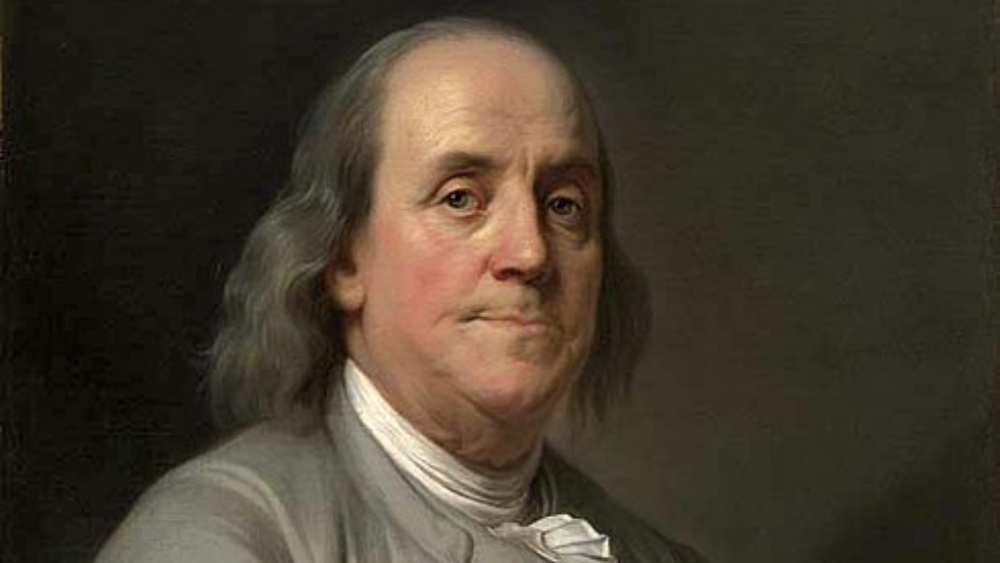Contrary to popular belief, Benjamin Franklin is not the Father of Electricity. Despite his face gracing the $100 bill, Franklin was not a war Veteran. Instead, he played a pivotal role in shaping the course of events through his political and satirical writings, employing pseudonyms such as Richard Saunders, Silence Dogood, and Polly Baker.
Writing as Saunders, he authored the immensely popular Poor Richard’s Almanack for a quarter of a century, amassing substantial wealth.
His literary works encompassed witty jokes and outlandish hoaxes and were even ordered and translated by Napoleon himself. Silence Dogood, Franklin’s alter ego, penned letters that delved into contemporary American issues, reflecting the nation’s struggles and aspirations for success.
Childhood and Formative Years
Benjamin Franklin’s childhood and formative years played a crucial role in shaping the remarkable individual he would become. Franklin was the fifteenth of seventeen children in a modest family. From an early age, he displayed an insatiable curiosity and a keen intellect. However, due to financial constraints, his formal education was cut short, and he entered into apprenticeships with various tradesmen, including his brother James, a printer.
Nurturing Intellectual Curiosity and Skills
During his apprenticeships, Franklin developed a deep love for reading and self-education. He voraciously consumed books and expanded his knowledge across a wide range of subjects. He honed his writing skills by analyzing articles from prominent publications, such as “The Spectator,” and practised emulating their style. Franklin’s autodidactic pursuits contributed to his later success as a writer and intellectual.
A Foundation of Work Ethics and Frugality
Franklin’s upbringing also instilled in him a strong work ethic and a sense of frugality. These values were exemplified in his influential publication, “Poor Richard’s Almanack,” where he imparted practical advice and aphorisms emphasizing the virtues of industry and thrift. These early lessons in diligence and resourcefulness became integral components of Franklin’s character and guided his future endeavours.
Benjamin Franklin: Alter Ego and Voice of American Issues
This persona, often described as a “widow,” fearlessly expressed her sentiments in writing, mirroring Franklin’s views on the country’s growth and its leaders.
In her second letter, she eloquently states, “Know then, that I am an Enemy to Vice and a Friend to Virtue. I am one of an extensive Charity and a great Forgiver of private Injuries: A hearty Lover of the Clergy and all good Men, and a mortal Enemy to arbitrary Government and unlimited Power. I am naturally very jealous of the Rights and Liberties of my Country. And the least appearance of an Encroachment on those invaluable Privileges is apt to make my Blood boil exceedingly.”
Views on Rights, Liberties, and Freedom of the Press
Franklin’s intended targets and subjects are evident between the lines. Published in the New England Courant, Franklin skillfully avoided ridicule from his colleagues while championing freedom of the press.
Opposition to Witchcraft Hysteria
Benjamin Franklin voiced his opposition to smallpox inoculations and penned political admonishments against those seeking or holding political office, particularly those involved in heinous crimes like the Witchcraft hysteria. While many quotes have been attributed to this Founding Father, Franklin took pleasure in engaging readers. He encouraged them to savor and contemplate his writings.
Benjamin Franklin: Writing Style and Philosophy
A quote that captures Franklin’s philosophy pertains to his dissatisfaction with the selection of the National Bird. He humorously remarks, “In truth, the turkey, when compared, is a considerably more honorable bird. Furthermore, it’s a genuine native of America. Despite being somewhat conceited and whimsical, it possesses bravery and would readily confront a British Guards grenadier who dared encroach on its territory, donned in a red coat.

Benjamin Franklin: Pioneering Contributions to Science and Politics
Moreover, Franklin was an advocate for scientific inquiry and experimentation. He contributed significantly to understanding electricity, influentially conducting his kite experiment to demonstrate the connection between lightning and electricity. Franklin’s scientific pursuits and inventions, such as the lightning rod, showcased his innovative spirit and desire to improve the world through practical solutions.
Beyond his writings, Franklin’s impact extended far beyond the realm of literature. He was a statesman, diplomat, and key figure in the American Revolution. His political writings, including his satirical pamphlet “Rules by Which a Great Empire May Be Reduced to a Small One,” reflected his deep commitment to the cause of American independence and his concerns over British colonial policies.











